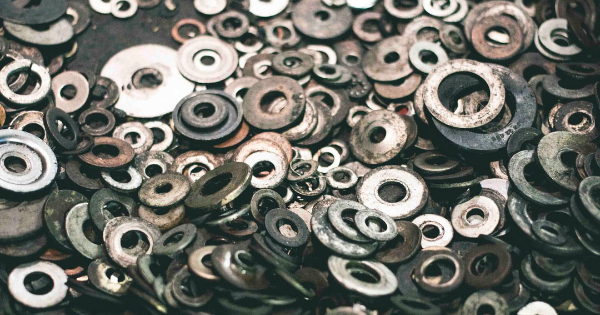In North America, more than 200 billion fasteners are used annually in different manufacturing industries such as automotive, construction, transportation, mining, and heavy equipment. Custom fasteners are a vital tool in the assembly process as they are used to fasten bolts and nuts that keep different parts of a product intact.
Check out our EZ Screw Builder to build your custom screw!
Getting the right amount of torque on the bolts and nuts of a product, say a car, is very crucial, as it adds to the overall safety and quality. When manufacturers are selling their products, they need to make sure that the right value of torque is applied to the bolts and nuts when they are clamping different parts together.
Torque is the twisting force that causes the bolts and screws to rotate and is measured by force applied on the custom fasteners, multiplied by the length of the fastener. Achieving the correct torque is essential to the assembly of any machine that utilizes screws and bolts. When using custom fasteners, it is important not to over-tighten the bolts by applying excess torque as this will make them loose in the long run, or cause them to crack. You should also not apply too little torque to the bolts and screws as they become loose and fall off.
Today, manufacturers have more fastener options such as torque wrenches, micro fasteners, and captive fasteners. Additionally, screw manufacturers have also added to the screw options by improving captive screws, micro screws, and miniature screws. Matching these different screws to their customized fasteners makes the assembly process for different engineering products more effective, as it is easy to tell the right amount of torque required.
As the manufacturing industry progresses, there are more custom fastener options and also custom screw options. As such, it is necessary to explore all the options available for screws and fasteners so that you can attain maximum utility in the assembling process. The right choice of custom fasteners will help you achieve the right amount of torque, and this will contribute to the overall safety and performance of your product.
Here are more reasons why you should use the right amount of torque for bolts, screws, and nuts.
1. Preserves the Quality of Bolts, Nuts, and Fasteners
When you use excess torque when fastening bolts and nuts, you run the risk of stretching, bending, or even cracking the bolt. As you apply more torque force than required, you overstress the bolt, and this makes it lose grip and fall off. Resultantly, the bolt or nut is rendered useless and cannot be used on any other part. Considering you have a long line of assembly, using the wrong custom fasteners will result in massive losses.
Additionally, excess torque force also damages the fasteners. If, for instance, you habitually use the wrong torque wrench and apply excessive force when tightening a bolt, the wrench will also lose its grip because of the excessive friction produced.
2. Enhances security and performance
For instance, if you manufacture cars, you need to ensure that all the bolts and nuts for the wheels, engines, and other body parts are properly fitted. Especially for fast-speed cars, you must ensure that the wheels are fitted with the right bolts and nuts and that the right amount of torque is applied when fastening them. The last thing you want is a bolt spinning off while the car is at high speed, as this would result in a catastrophic accident.
Ultimately, if any of your products have parts that are clamped together with screws, bolts, and nuts, you need to invest in custom fasteners so that you can avoid applying excessive or insufficient torque. However, keeping tabs on the different fastener and screw options may prove to be overwhelming. Luckily, you can seek professional help from screw specialists near you so that you get maximum utility from custom fasteners, screws, bolts, and nuts.

